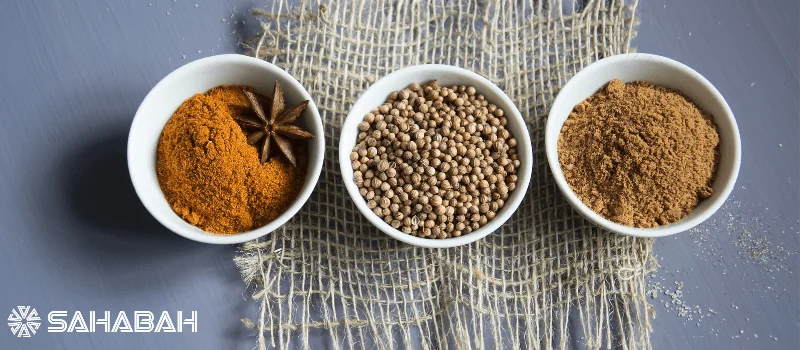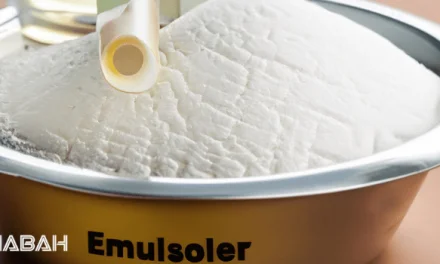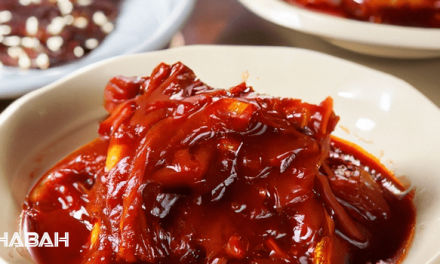As a muslim consumer who values transparency and wants to make informed choices, I was curious to delve into the halal status of Nutmeg. In this article, I will uncover the truth behind Nutmeg’s halal certification, providing you with the knowledge you need to confidently enjoy this spice in your food.
Intoxicant or Innocent Ingredient
The spice nutmeg has been used for centuries in cuisines around the world. However, there is an ongoing debate within the Muslim community regarding whether nutmeg is halal (permissible) or haram (prohibited). This article will examine the evidence and arguments on both sides of this issue.
Some key questions around nutmeg’s permissibility include:
- Does nutmeg qualify as an intoxicating substance according to Islamic law?
- What dosage levels of nutmeg start to have psychoactive effects?
- Are there differences between culinary uses of nutmeg versus medicinal uses?
| Type of Use | Description |
|---|---|
| Culinary | Added to dishes and baked goods as a spice |
| Medicinal | Historical use as a treatment for illnesses |
| Recreational | Consuming high doses for psychoactive effects |
“Nutmeg is often described as a spice with hallucinogenic properties, but substantial doses are required for serious toxicity to occur”
Background on Nutmeg
Nutmeg comes from the seed of the nutmeg tree (Myristica fragrans), which is indigenous to the Banda Islands of Indonesia. Some key facts about nutmeg:
- Nutmeg has been used as a spice and traditional medicine since at least the 7th century
- The Arabs were instrumental in spreading nutmeg to Europe and Africa
- Nutmeg was highly prized during the European colonization of Indonesia
| Part of Nutmeg | Use |
|---|---|
| Seed | Ground and used as a spice |
| Aril | The red lacy covering of the seed, used as the spice mace |
| Essential oil | Extracted from the seed, used for flavoring and fragrances |
“Nutmeg is taken from the seed of the fruit of the nutmeg tree. It is scientifically called Myristica fragrans and has many uses, including culinary and medicinal purposes”
Nutmeg contains myristicin, a compound that can have psychotropic effects at higher doses. This has led to debate over its Halal status.
Arguments That Nutmeg is Halal
Many Islamic scholars and authorities argue that nutmeg is permissible to consume in its typical culinary form and dosage. Reasons supporting nutmeg being halal include:
- Nutmeg as a spice does not intoxicate or cause mind-altering effects.
- The Prophet Muhammad (pbuh) did not prohibit spices and herbs.
- Historical use of nutmeg as a medicine suggests it was not considered an intoxicant.
“If a large amount is consumed it may have a bad effect and be regarded as an intoxicant, which is haram, but eating normal amounts of nutmeg is not haram”
| Scholar | Stance on Nutmeg |
|---|---|
| Most Hanafi scholars | Permissible in normal culinary quantities |
| Al-Azhar Fatwa Committee | Not intoxicating, so permitted |
| European Council for Fatwa and Research | No prohibition of nutmeg in Shari’ah |
Those arguing nutmeg is halal say there needs to be caution about declaring common foods forbidden without clear evidence they violate Islamic law.
Arguments That Nutmeg is Haram
Some Islamic scholars take the position that nutmeg should be prohibited due to its potential as an intoxicating substance. Arguments that nutmeg may be haram include:
- The principle of blocking the means to evil suggests nutmeg should be avoided.
- Unrestricted consumption could lead to harm and intoxication.
- Combining nutmeg with other drugs exacerbates its mind-altering effects.
“It is well-known that nutmeg, if consumed in large quantities, will have an intoxicating effect.”
Some scholars advocating prohibition or caution with nutmeg usage:
- Ibn Hajar al-Haytami (Shafi’i scholar)
- Al-Qaradawi (Sunni Egyptian scholar)
- Various Saudi Arabian scholars
Those arguing against permissibility say intoxication of any kind, including through spices, goes against Islamic principles.
Ongoing Debate and Differences of Opinion
There is a lack of consensus among Islamic scholars regarding the permissibility of nutmeg. This is evident in the ongoing debates and contrasting fatwas on the topic. Some factors contributing to the differences of opinion include:
- Varying interpretations of intoxication and mind-altering effects according to Islamic law
- Differences between traditional and modern views of nutmeg’s effects
- Lack of definitive scientific evidence on toxicity and addiction risks
“Among the contemporary scholars there is a difference of opinion concerning this matter.”
| Position | Representative Groups |
|---|---|
| Permissible | Many Hanafi scholars, European Council for Fatwa and Research |
| Impermissible | Ibn Hajar al-Haytami, Al-Qaradawi, Saudi Arabian scholars |
| Unclear | Diverse opinions among Muslim communities globally |
Further discourse and examination of evidence is needed, especially from a medical and scientific lens. This can help resolve the ongoing halal status debate over nutmeg.
Is Nutmeg Halal – Frequently Asked Questions
Yes, nutmeg is generally considered halal. It is a spice that is derived from the nutmeg tree and is commonly used to improve the flavor of food.
Can we consume nutmeg?
Yes, it is permissible to consume nutmeg in small amounts. However, consuming it in large quantities may have intoxicating effects.
What does “halal” and “haram” mean?
“Halal” refers to what is permissible or allowed in Islamic law, while “haram” means something that is prohibited or forbidden.
Is nutmeg considered an intoxicant?
Nutmeg is not classified as an intoxicant. However, consuming large quantities of nutmeg can cause hallucinogenic effects.
What does the hadith say about nutmeg?
There is no specific hadith that mentions nutmeg. However, it is important to exercise moderation in its use.
Can nutmeg be mixed with food?
Yes, you can mix nutmeg with food to improve the flavor. It is commonly used in various dishes and desserts.
What do scholars say about the permissibility of nutmeg?
Scholars have different opinions regarding the permissibility of nutmeg. Some consider it halal, while others believe it can have intoxicating effects and, therefore, haram.
Is there anything wrong with using nutmeg to improve the flavor of food?
No, there is nothing wrong with using nutmeg to enhance the flavor of food. It is a common practice and widely accepted.
Can people get intoxicated by consuming small amounts of nutmeg?
Consuming small quantities of nutmeg is unlikely to cause intoxication or hallucinogenic effects in most individuals.
What do fiqh scholars say about the prohibition of eating nutmeg?
The prohibition of eating nutmeg is not universally agreed upon among fiqh scholars. While some consider it haram due to its potential intoxicating effects, others believe it is permissible as long as it is consumed in moderation.
Conclusion
In summary, there are good-faith arguments on both sides of the debate over whether nutmeg is halal or haram for Muslim consumption. Key points include:
- Most agree that culinary uses of nutmeg as a spice are likely permissible
- Concerns mainly revolve around higher medicinal or recreational doses
- Lack of scholarly consensus stems from differing interpretations of intoxication
Potential determinants of nutmeg’s permissibility include:
- Dosage amount and frequency
- Combination with other psychoactive substances
- Intent behind its usage
“In principle, foods and drinks are permissible as long as they are not intoxicating or harmful to health.”
Further examination of nutmeg’s scientific and pharmacological effects is needed. Open and evidence-based discourse between scholars of different viewpoints could also help advance this complex issue. There is room for a nuanced halal ruling on nutmeg reflecting the spectrum of its possible uses.





